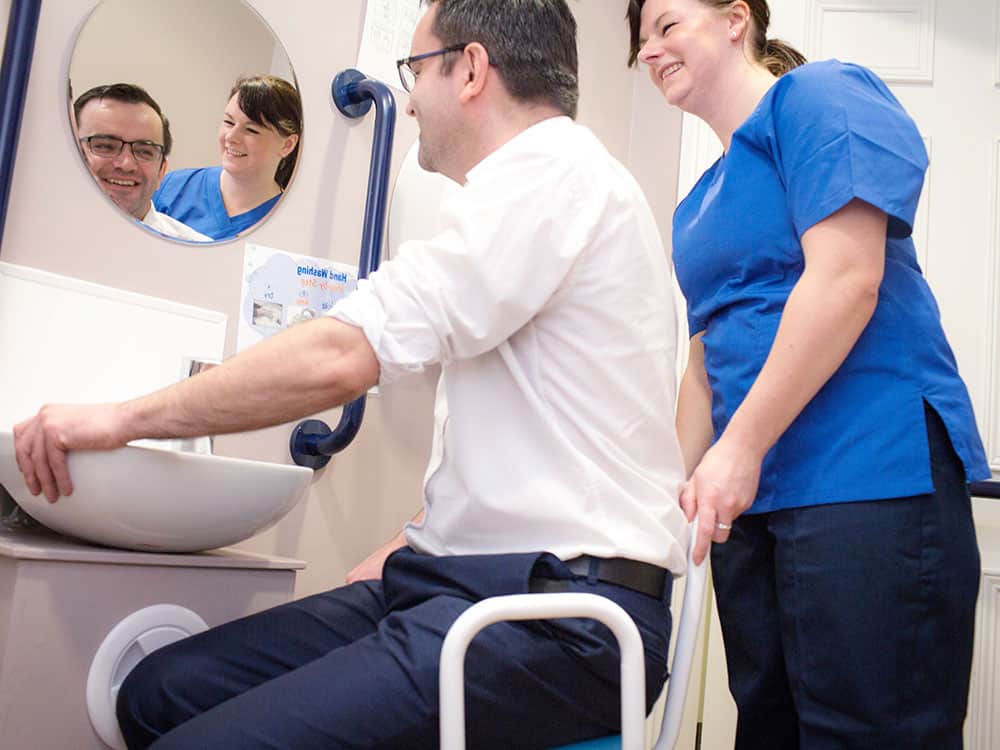What RCOT’s new adaptation assessment guidance means for mobility retailers and suppliers
Following the launch of the Royal College of Occupational Therapists’ (RCOT) new guidance for addressing delays in the assessment and delivery of minor and major housing adaptations, specific advice has been published aimed at the mobility trade.
The new assessment framework
The recently published guide Adaptations without delay recommends a new framework for organisations to use to identify the level of occupational therapist intervention needed for housing adaptations.
Under the new framework, housing adaptations are to be defined based on the level of complexity of the adaptation scenario – universal (low level), targeted (moderate), and specialist (high risk) – rather than the cost or type of adaptation required.
By defining the complexity of adaptation scenario, RCOT hopes to reduce delays caused by having to wait for OTs to assess end-users for relatively simple and straightforward cases, rather freeing up their time to work on specialist, complex cases.
A growing number of self-funders
Specifically addressing the mobility trade, RCOT highlights in the guide that a growing number of ‘self-funders’ are seeking housing adaptations directly from the trade.
“Older and disabled people are becoming less reliant on, or are being signposted away from, statutory services,” states the new publication.
“To adapt their home, many older and disabled people are directly purchasing products or employing builders. It is therefore vital that this sector provides safe and person-centred services.”
As part of the new framework, the guide points out the need for more organisations, such as home improvement agencies, to be aware of the services that retailers can provide for universal adaptations, encouraging better signposting of local mobility retailers who can provide off-the-shelf solutions.
In addition, the guide highlights the need for retailers and builders to have a better understanding of when a scenario falls into the targeted or specialist level of complexity and when it is prudent to seek the expertise of an OT.
Using the framework as a retailer
According to the guide, the new framework can help retailers, builders and product manufacturers to understand when they need to consult with an occupational therapist for support to design and install the right solution for this growing segment of self-funders.
“The overall framework and intervention tables will help this sector to understand what level of intervention they can deliver safely and effectively, and when they need to draw on the expertise of occupational therapists.”
To help better evaluate when an OT is needed, the publication references a checklist provided in the Disabled Living Foundation’s Trusted Assessor training, designed to help those in the trade identify when they are able to provide a safe solution and when they should work with an OT.
Supporting decisions on when to refer for occupational therapist assessment
A checklist used in Trusted Assessor Training
- Does the customer have more than two conditions that are impacting on their ability to complete the chosen task?
- Does the customer’s condition change significantly from day to day or is their condition likely to change significantly within the next year?
- Does the customer lack capacity to make decisions and/or are they unable to follow instructions?
- Is the environment complex and difficult to adapt?
- Is the solution outside standard and simple options available to you?
- Has the person lost the ability to transfer from one seat to another?
- Does a Trusted Assessor solution impact others’ health, development or independence within the environment?
- Are there other areas that the customer is struggling with in the same environment that a Trusted Assessor solution wouldn’t solve safely?
If the answer is yes to any of these questions then you should seek help from an occupational therapist.
An opportunity for builders to better collaborate
In particular, the guide underlines that “there are a growing number of older and disabled people who require a targeted or specialist level of intervention/service but who are self-funding,” emphasising that “there is an opportunity for independent occupational therapists and building professionals to collaborate to meet this demand.”
RCOT says the new guide and framework can be used as a foundation for builders installing adaptations for older and disabled people to develop business partnerships with independent occupational therapists.
How suppliers reduce adaptation delays
Additionally, the Adaptations without delay guide notes product suppliers can play a pivotal role in speeding up the delivery of specialist interventions by helping reduce the time OTs spend sourcing, researching and analysing the cost–benefits of products for their assessments.
To reduce this process, RCOT is calling on manufacturers and suppliers to ensure vital product information needed by OTs is easily and readily available.
The information includes how a product can be used to improve functional performance, a cost-benefit analysis, as well as real-world case studies of how the product has been used.



